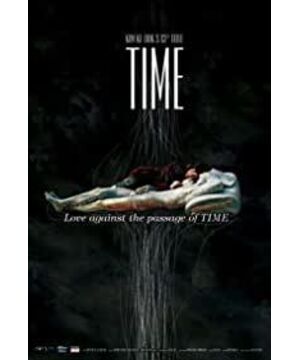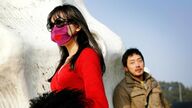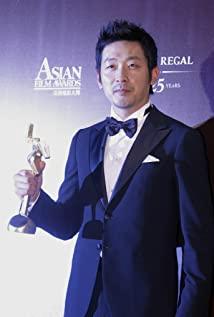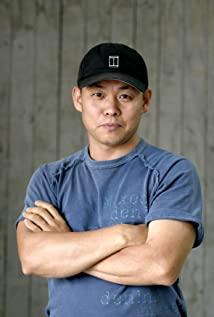There is a director who always stands like a mountain in front of filmmakers and moviegoers, regardless of extreme praise or extreme criticism, but you can never ignore him. Pasolini is such a director, Fassbender is such a director, and the surviving Kim Kidd is such a director. They are not the gravediggers of the post-industrial era, but they try to dissolve people’s anxiety; they encourage the openness of humanity in the film, but from time to time they show the evil results of unprincipled carnival; they are not bloody revolutionary warriors, but they mock the current centralization or stupidity The government; they did not contribute to the economic development of capitalism, but had to be disappointed at the box office. Of course, they criticized the commercial mechanism and the level of public appreciation.
Love, once as beautiful as poetry, inhibited the return of animality in the process of human evolution. It brought sex from the field of technology to the field of art. The love in "Time" also carries this kind of meaning, but time makes this kind of meaning take on another attitude. A seemingly comfortable mode of production and life has made people accustomed to being alienated, and even have the need to be actively alienated. The public's aesthetic taste is also unified by the media and commerce. People themselves no longer appear as flesh, but commercial symbols or aesthetic symbols. People are busy sharing the benefits of the system, accepting the unlimited prosperity brought by commerce, and ignoring many unreasonable things. But this is a kind of alienation of people after all. When the contradiction cannot be resolved, the result must be extreme. Kim Ki-dok is fiercely focused on the spiritual crisis of modern society, and uses the aesthetic level of love to resist and criticize, or a kind of self-help.
Se Hee herself is a good-looking girl. He has been in love with his lover Ji Woo for many years. But when he saw Zhiyu talking and laughing with other women, he felt a sense of crisis. She thinks her boyfriend likes new faces, so she thinks of plastic surgery. The beginning of the film is a real plastic surgery video, the director did not avoid any detail. This bloody video was released again when Shixi was about to undergo plastic surgery, and the doctor repeatedly asked her whether she was sure to undergo plastic surgery. Shixi burned the previous photos and went to the operating table. The process from plastic surgery to recovery takes about six months. During this time, she turned off her mobile phone to avoid contact with Zhiyu. Some time later, she met Ji Woo in a cafe, but Ji Woo didn't know that the woman opposite was Se Hee. Changing faces did not bring any surprises to the two people. Zhiyu still loves the previous Sexi. After the plastic surgery, Shixi didn't get the desired result, and it was not even as good as before. When she had sex with Ji Woo, she knew that Ji Woo was thinking about her former self, and she was even a little jealous of "her". Zhiyu only regarded her as a one-night lover, and the two stopped communicating after sex. Both sides are looking for each other amidst contradictions and anxiety, and they have actually lost themselves. The next change is the process of two people looking for their lost selves.
Kim Kidd had stayed in the church when he was young. He cherished every piece of his own personal experience, and he had thought about every experience dialectically. For example, studying abroad ("Beast City"), such as joining the army ("Coastline"), this experience greatly improves the credibility of his films. The experience of the church makes several of his films have the themes of redemption and self-searching.
The hero and heroine went to the sculpture park where they took photos before, trying to find the past here. Most of the sculptures here are based on sex. This location determines that the two people's feelings will not go beyond the physical level. Shixi couldn't bear that her lover didn't know him, or even if they knew him, he wouldn't have real feelings. Because Ji Woo loves that Sexi before. She wore a mask to wound into the plastic surgery hospital, accusing her of infringement of this technology on herself. Zhiyu also expressed anger at the operation performed by the doctor. They attributed the root of the emotional crisis to plastic surgery. Next is the typical Kim Kidd-style extreme storyline-Ji Woo also got a facelift. Ji Woo, who is looking for new faces everywhere, Shixi, she has experienced several men. Even after she really found Zhiyu, she couldn't find her previous love, but was even stranger. Two familiar strangers chased through the streets of Korea. Zhiyu finally died tragically in a car accident, and the terrified Shixi went to the plastic surgery hospital again and returned to his previous face. At the end of the film, Kim Ki-duk focused the camera on the handsome face on the street, and then the boundless sea...
The filming technique of this film is closer to Kim Kidd’s early works, such as "Beast City" and "The Truth." The simple composition, ingenious props, and the strong contrast of colors make the film present an extreme temperament. There are a large number of close-up shots of characters in "Time", the environment is ignored, and the focus is rigidly focused on people's expressions or other parts. In this way, his films go beyond national and regional restrictions and focus on human nature. Questioning and criticizing. Nude sculptures of sexual intercourse and a dog bitten penis appear in the film from time to time. They will not easily change over time, forming an ingenious contrast between the male and female protagonists walking through them. Shixi was wearing a smiling mask while she was crying at that time. Kim Kidd cleverly satirized the seemingly happy modern people under the current system. A big tree appeared twice in the film. This was originally a symbol of male genitalia, but the scars on the trunk resembled female genitalia. When the hero and heroine were frustrated, they would kick the tree to vent. Kim Kidd once again questioned human sexuality. Even if the theme of the film is still cruel, it seems that the film under this theme should have public photography techniques, such as "Tie Man", but the photography of "Time" is beautiful and impeccable. The city, which has no sense of beauty, also looks peaceful and simple in his movies. Of course, "Drifting Desire Room", "Spring, Summer, Autumn, Winter, and Another Spring", "Bow" is the ultimate in this unique style. What he explores is always the true approach of people in a seemingly peaceful life. The cruel inner world is always behind the seemingly reasonable and harmonious appearance.
The film information:
Also known as: Time / Lie Yan
Director: Ki-duk Kim (Ki-duk Kim)
Starring: Sung Hyun Ah / Ha Jung Woo / Park Ji Yeon / Kim Sung Min
Release year: 2006
Language: Korean
Production Country/Region: South Korea
Wei Xiaobo 2006-11 -17 in Zhuzhou shabby room
View more about Time reviews









